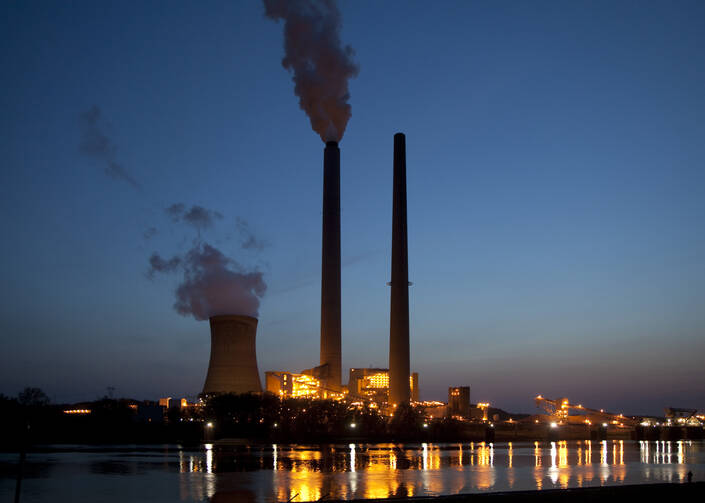Though their efforts this week on immigration reform garnered most of the attention, the U.S. bishops shared other items of concern with Washington authorities this week. They pushed the world's most powerful enviromental bureaucrats to take climate change more seriously. The full press release from the U.S. Conference of Catholic Bishops follows below:
U.S. Bishops Urge Action On Carbon Pollution To Stem Climate Change
May 29, 2014
Reduce carbon pollution to mitigate climate change
Consider effects of pollution on poor, vulnerable people nationally, globally
Act now to protect human life and dignity in the future
WASHINGTON—The U.S. bishops urged the U.S. Environmental Protection Agency “to develop standards to reduce carbon pollution from existing power plants and thereby mitigate climate change” in a May 29 letter from Archbishop Thomas G. Wenski of Miami, chairman of the Committee on Domestic Justice and Human Development of the U.S. Conference of Catholic Bishops (USCCB).
“The USCCB recognizes the importance of finding means to reduce carbon pollution,” Archbishop Wenski said. “These standards should protect the health and welfare of all people, especially children, the elderly, as well as poor and vulnerable communities, from harmful pollution emitted from power plants and from the impacts of climate change.” The letter can be found at www.usccb.org/issues-and-action/human-life-and-dignity/environment/environmental-justice-program/upload/letter-to-epa-from-archbishop-wenski-on-carbon-emissions-standards-2014-05-29.pdf.
Archbishop Wenski said that “the best evidence indicates that power plants are the largest stationary source of carbon emissions in the United States, and a major contributor to climate change. Power plants have often been located near low-income neighborhoods and communities of color. Air pollution from these plants contributes to respiratory problems, especially in the young and the elderly.”
He added that there are “damaging impacts from climate-related events in the United States and across the globe, particularly on poor and vulnerable communities. Beyond the regulations, the United States should exercise leadership for a globally negotiated climate change agreement.”
“The communities served by Catholic Relief Services (CRS) are already experiencing the tragic consequences of climate change,” Archbishop Wenski said. “Increasingly limited access to water, reduced crop yields, more widespread disease, increased frequency and intensity of droughts and storms, as well as conflict over declining resources – all these are making the lives of the world’s poorest people even more precarious,” he said.
Archbishop Wenski urged the EPA to be guided by the following principles, outlined by both the U.S. bishops in their 2001 statement “Global Climate Change: A Plea for Dialogue, Prudence and the Common Good” and Pope Francis in recent comments.
• Respect for Human Life and Dignity, “especially that of the poorest and most vulnerable: from children in the womb to the elderly,” who feel “the health impacts of climate change, including exposure to climate-sensitive diseases, heat waves and diminished air quality.”
• Prudence on Behalf of the Common Good through “wise action to address climate change” now “to protect the common good for present and future generations.”
• Priority for the Poor and Vulnerable since “the consequences of climate change will be borne by the world’s most vulnerable people.”
• Social and Economic Justice. Workers should be protected from negative effects on the workforce resulting from the new standards and should receive assistance to mitigate impacts on their livelihoods and families. Any additional costs that such standards may generate must be distributed fairly, without undue burden on the poor.
• Care for creation given the call “to be responsible stewards of the earth and to use the gifts we have been given to protect human life and dignity, now and in the future.”
• Participation of local communities, especially low-income communities, “who should have a voice in shaping these standards based on their local impact.”
Further information on the environmental efforts of the USCCB Environmental Justice Program can be found at http://www.usccb.org/issues-and-action/human-life-and-dignity/environment/environmental-justice-program/








